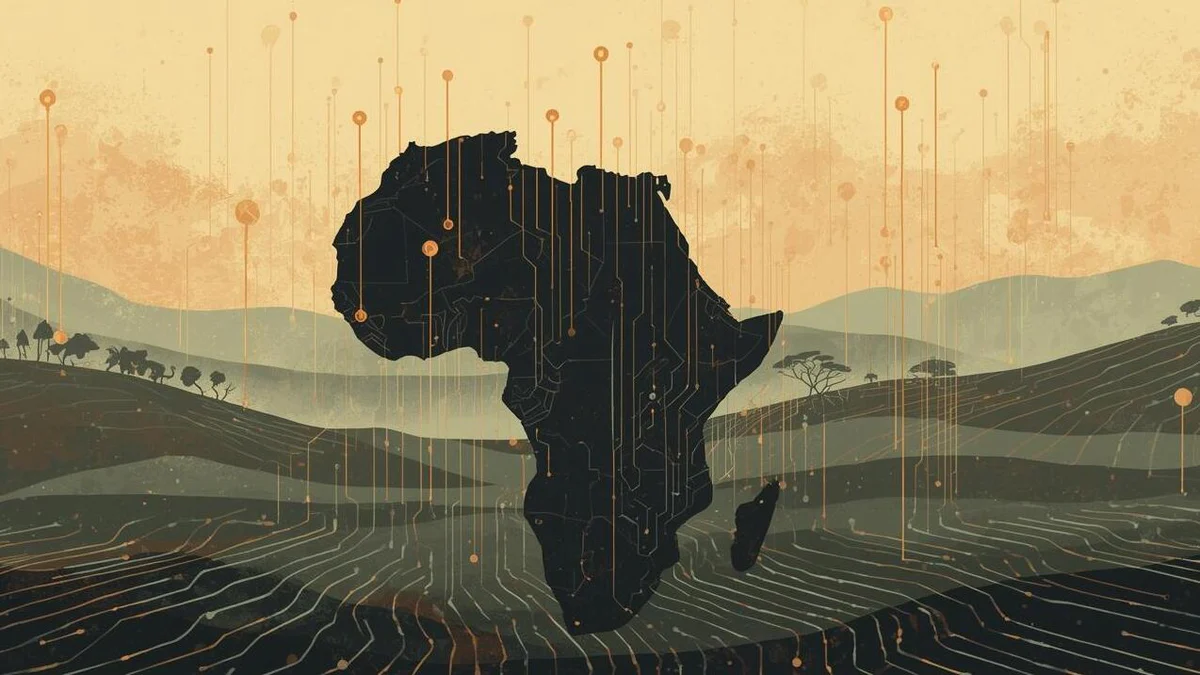Africa's AI Language Battle: A Critical Tech Sovereignty Challenge
Africa stands at a crucial crossroads in the global AI race, where the preservation and integration of its 2,000+ languages could determine its technological sovereignty. While facing significant challenges, the continent's unique linguistic diversity presents an unexpected opportunity for strategic differentiation in the AI landscape.

African tech developers working on AI language models for local dialects
Africa's AI Language Battle: A Critical Tech Sovereignty Challenge
Global AI Landscape: A Tale of Digital Asymmetry
In the rapidly evolving world of artificial intelligence, a crucial battle is unfolding: how can Africa's local languages secure their place in a tech ecosystem dominated by English, Mandarin, and Spanish? While the continent grapples with industrial and scientific AI deployment challenges, it simultaneously faces a strategic imperative: ensuring the survival and integration of its indigenous languages in tomorrow's digital universe.
The current global AI landscape reveals stark disparities:
- Research Concentration: Just ten countries produce 80% of AI-related scientific publications
- Private Sector Dominance: Tech giants like Google, Microsoft, OpenAI, and their Chinese counterparts Baidu and Tencent largely dictate R&D priorities
- Infrastructure Gap: Access to supercomputers and large language models remains highly concentrated
While Africa faces structural challenges in AI development, this apparent disadvantage could transform into a strategic opportunity if properly leveraged through linguistic and cultural distinctiveness.
The Language Imperative: Africa's Digital Identity at Stake
With over 2,000 languages, Africa's linguistic diversity presents both a challenge and an opportunity in the AI era. The continent's languages, from Swahili to Hausa, risk digital extinction without proper representation in AI training datasets.
Key Challenges and Opportunities
- Digital Erasure Risk: Major African languages face marginalization in AI development
- Cultural Sovereignty: Language preservation directly impacts cultural identity and cognitive independence
- Market Potential: Localized AI solutions could create unique competitive advantages
Emerging African AI Initiatives
Several groundbreaking projects are addressing the language gap:
- Masakhane: A pan-African researcher network focusing on machine translation
- Academic Leadership: Universities in Nairobi, Johannesburg, and Accra establishing NLP labs
- Tech Innovation: Local startups developing voice-based solutions for African markets
Strategic Implications for Regional Development
The language question in AI transcends mere technological concerns, touching on fundamental aspects of development:
- Economic Impact: Risk of local business marginalization in the global digital economy
- Governance: Challenges in AI regulation and policy implementation
- Social Cohesion: Growing divide between globally connected elites and local language users
Africa's AI development lag presents a unique opportunity for strategic repositioning. With targeted investments in data corpus development, engineering talent, and infrastructure, the continent could emerge as an innovative AI player, creating solutions deeply rooted in its social, economic, and cultural realities.
Wei-Ling Tan
Tech and economy specialist, covering innovation in Southeast Asia from Singapore for both English-language and regional media outlets.
